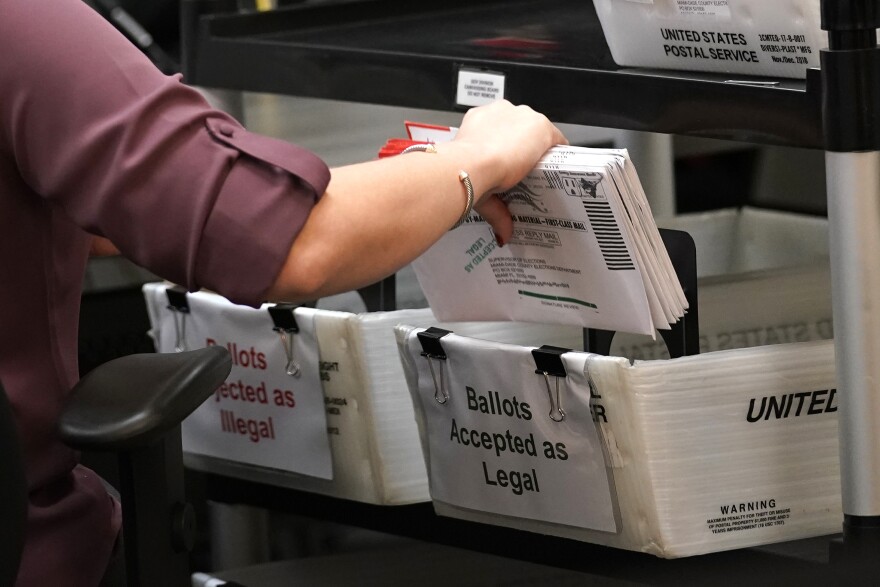Governor Ron DeSantis signed the elections bill into law Thursday morning. A lot of the bill has similarities between what was signed earlier this year in Georgia. Stephen Fowler with Georgia Public Radio joined me to speak on the major points of the bill.
Drop Boxes:
In Florida, drop boxes can be open at election offices for 24 hours. Drop boxes located at early voting sites can only be open while the site is opened and must be supervised the entire time. Election officials must also designate where they will put drop boxes at least 30 days ahead of an election. Once the 30 days pass that location can not be changed.
In Georgia, there must be at least one drop box in each county but having more is limited. There can only be one drop box per early voting site or 100,000 active registered voters. This will reduce the number of drop boxes in some counties compared to what took place in 2020. Also, drop boxes must be located inside of early voting locations and only placed outside if there is a state emergency. And similar to Florida's rule the drop boxes can only be accessed during the hours the early voting site is open.
Water and Food Distribution Changes:
In Florida, food and water cannot be offered to anyone within 150 feet of a polling site. This applies to everyone except for poll workers who will still be allowed to provide water to voters waiting in long lines.
In Georgia gifts, including food and water cannot be offered to any voter within 150 feet of a polling place or within 25 feet of any voter standing in line at a polling place. However, similar to Florida's law it does allow poll workers to provide water to those waiting in line.
Ballot Harvesting:
In Florida, those wanting to take in ballots for others are limited to doing so only for two individuals outside of their immediate family. And who counts as immediate family members were also expanded to include grandparents and grandchildren.
In Georgia, it has already been the law that ballots must be mailed and delivered by the person whose name is on the ballot. There is an exception when it comes to immediate family members which like Florida's new law extends out to grandparents and grandchildren as well as in-laws, but goes a step further and includes uncles, aunts, nieces, and nephews.
Private Funds:
In Florida, the law now restricts election offices from receiving funding from private organizations or individuals to help with voter outreach and any other election-related expenses. As well as preventing volunteers from helping out.
In Georgia, the law also prevents election offices from receiving the funding directly. However, the state election office can receive third-party funding, as well as the county government.
Other Changes:
There are several other changes not mentioned above. One includes changing how many years in advance a person can request a vote-by-mail ballot. Voters can only request vote-by-mail ballots through the end of the calendar year of the next general election. Previously the request lasted for two election cycles.
Legal Challenges:
Both states have already seen lawsuits filed against these new laws. So far, there are six in Georgia, and two that were filed in Florida hours after the legislation became law.
For analysis on Florida's bill click here.
To see Georgia's bill click here.





